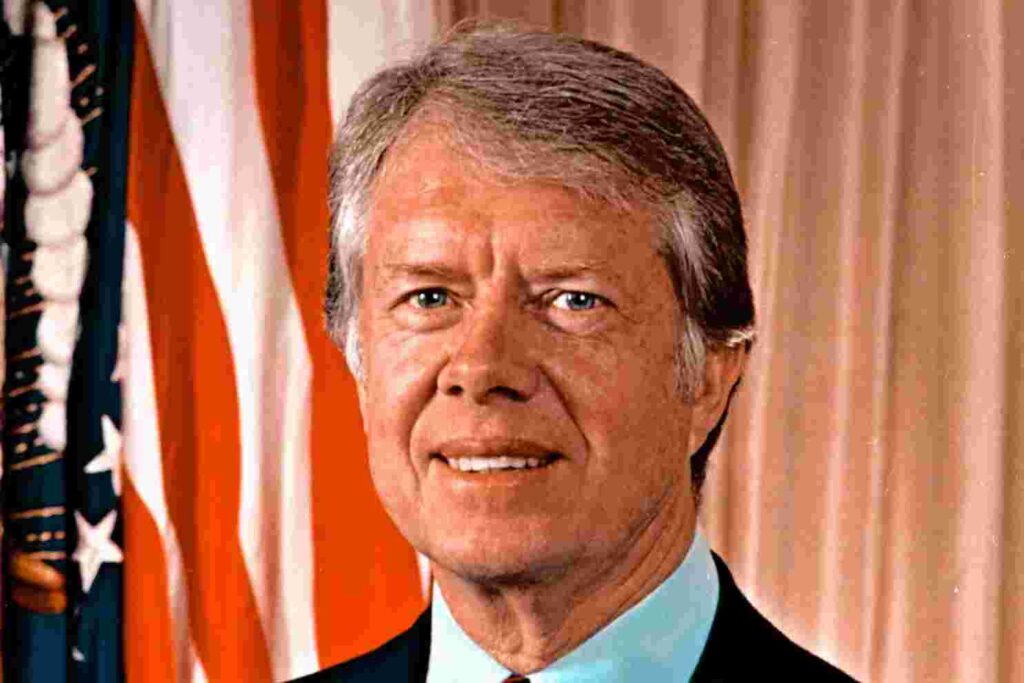Jimmy Carter, the 39th President of the United States, is a figure whose influence extends beyond his time in office. Known for his unwavering commitment to human rights, diplomacy, and public service, Carter’s legacy remains significant in American history and global affairs. This article explores his life, presidency, post-presidential contributions, and lasting impact, providing a comprehensive overview of why Jimmy Carter is remembered as a distinguished leader and humanitarian.
Early Life and Career
Born on October 1, 1924, in Plains, Georgia, Jimmy Carter grew up in a modest farming family. His early years were shaped by the values of hard work, faith, and community involvement. After graduating from the United States Naval Academy in 1946, Carter served as a naval officer, which laid the foundation for his disciplined approach to leadership. His transition from military service to politics was marked by a deep interest in public service and a desire to improve his community.
Entry into Politics and Governorship
Jimmy Carter’s political journey began when he was elected to the Georgia State Senate in 1962. His reputation as a dedicated and effective legislator grew rapidly, leading to his election as governor of Georgia in 1971. As governor, Carter focused on modernizing the state’s government, improving education, and promoting civil rights. His leadership during this period demonstrated his ability to navigate complex political landscapes and build consensus.
Presidential Campaign and Election
Jimmy Carter’s presidential campaign in 1976 was driven by a promise to bring honesty and integrity back to Washington. Running as a political outsider, he emphasized human rights and economic reform. His message resonated with voters tired of political scandal and disillusionment with previous administrations. Carter’s victory in the 1976 election marked the beginning of a presidency characterized by both significant achievements and notable challenges.
Presidency: Achievements and Challenges
Jimmy Carter’s presidency was marked by a focus on domestic and foreign policy initiatives. He prioritized energy conservation and renewable energy, recognizing the importance of reducing dependence on foreign oil. Carter also launched efforts to improve healthcare and education, emphasizing social welfare programs.
On the foreign policy front, Carter is best known for his efforts to promote peace in the Middle East. The Camp David Accords, brokered between Egypt and Israel in 1978, stand out as a major diplomatic achievement. Despite these successes, Carter faced difficulties, including the Iran hostage crisis, which strained his presidency and affected his public approval ratings.
Post-Presidential Humanitarian Work
After leaving office in 1981, Jimmy Carter dedicated himself to humanitarian causes through the Carter Center, founded in 1982. The center focuses on advancing human rights, promoting democracy, and eradicating diseases worldwide. Carter’s work in conflict resolution and election monitoring has earned him international praise and numerous awards, including the Nobel Peace Prize in 2002.
Carter’s Commitment to Human Rights
Throughout his post-presidential years, Jimmy Carter has been a vocal advocate for human rights. His efforts have often involved mediating conflicts, supporting democratic institutions, and addressing global health issues. His commitment to these causes underscores his belief that leadership extends beyond political office and into service for humanity.
Legacy and Impact
Jimmy Carter’s legacy is multifaceted. His presidency demonstrated the importance of integrity and moral leadership in government. His post-presidential work has set a standard for active citizenship and global humanitarian engagement. Carter’s influence continues to be felt in diplomacy, human rights advocacy, and community service.
Conclusion
Jimmy Carter’s life and career exemplify a deep dedication to public service, peace, and human dignity. From his early days in Georgia to his international humanitarian efforts, Carter remains a symbol of compassionate leadership. As history continues to evaluate his contributions, one thing remains clear: Jimmy Carter’s legacy is built on the principles of honesty, perseverance, and a genuine desire to make the world a better place.


